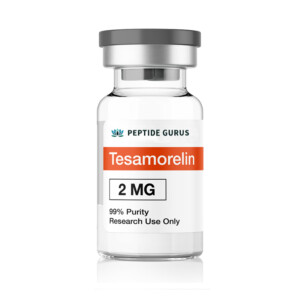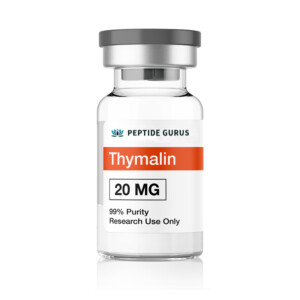Research peptides have become a subject of significant interest in the scientific community due to their potential applications in various fields. However, the legality of purchasing these peptides can be a complex issue. Are research peptides legal for purchase? This question is often asked by researchers and enthusiasts alike, as the answer can vary depending on the country and the specific regulations in place.
In the United States, the legality of purchasing research peptides is governed by several regulatory bodies, including the Food and Drug Administration (FDA) and the Drug Enforcement Administration (DEA). Research peptides are generally classified as chemicals intended for laboratory research and are not approved for human consumption. As such, they can be legally purchased for research purposes but not for personal use.
The FDA has strict guidelines regarding the sale and distribution of substances that are not approved for human use. Companies that sell research peptides must clearly label their products as “not for human consumption” and ensure that they are only sold to individuals or entities engaged in legitimate scientific research. Failure to comply with these regulations can result in severe penalties, including fines and criminal charges.
Are research peptides legal for purchase in other countries? The answer can vary significantly. In the European Union, for example, research peptides are also regulated and are typically only available for purchase by licensed research institutions. Individual countries within the EU may have their own specific regulations, so it is essential to be aware of the local laws before attempting to purchase these substances.

In Canada, research peptides are regulated under the Food and Drugs Act. Similar to the United States, these peptides are classified as research chemicals and are not approved for human use. They can be legally purchased for research purposes, but companies must adhere to strict labeling and distribution guidelines to ensure compliance with the law.
Australia has its own set of regulations regarding the purchase and use of research peptides. The Therapeutic Goods Administration (TGA) oversees the regulation of therapeutic goods, including research chemicals. Research peptides can be legally purchased for scientific research, but they must be clearly labeled and sold only to authorized research institutions.
The legality of purchasing research peptides in Asia varies widely from country to country. In some countries, such as Japan and South Korea, research peptides are strictly regulated and can only be purchased by licensed research entities. In other countries, the regulations may be less stringent, but it is always important to verify the local laws before making a purchase.
In addition to national regulations, there are also international guidelines that govern the sale and distribution of research peptides. The International Council for Harmonisation of Technical Requirements for Pharmaceuticals for Human Use (ICH) provides guidelines that aim to ensure the safety, quality, and efficacy of pharmaceuticals, including research chemicals.
The World Health Organization (WHO) also plays a role in regulating research chemicals. The WHO provides guidelines and recommendations for the safe handling and use of research peptides to protect public health and ensure that these substances are used responsibly in scientific research.
Despite the complex regulatory landscape, many researchers continue to purchase and use research peptides for legitimate scientific purposes. These peptides have shown promise in various fields, including medical research, drug development, and biotechnology. However, it is crucial for researchers to stay informed about the legal requirements and ensure that they are in compliance with all applicable regulations.
One of the challenges in regulating research peptides is the rapid pace of scientific advancement. As new peptides are discovered and developed, regulatory bodies must continually update their guidelines to address emerging risks and ensure the safe use of these substances. This dynamic environment can make it difficult for researchers to stay up-to-date with the latest regulations.
To navigate the complex legal landscape, many researchers rely on reputable suppliers that specialize in research peptides. These suppliers are knowledgeable about the regulatory requirements and can provide guidance on the legal purchase and use of their products. By working with trusted suppliers, researchers can ensure that they are obtaining high-quality peptides that meet all legal and safety standards.
Another important consideration for researchers is the ethical use of research peptides. While these substances have the potential to advance scientific knowledge and lead to new medical treatments, it is essential to use them responsibly and ethically. Researchers must adhere to ethical guidelines and obtain the necessary approvals from institutional review boards or ethics committees before conducting experiments with research peptides.
The use of research peptides in clinical trials is another area that requires careful consideration. Clinical trials involving research peptides must be conducted in accordance with strict regulatory guidelines to ensure the safety and well-being of participants. Researchers must obtain approval from regulatory bodies and adhere to Good Clinical Practice (GCP) standards when conducting clinical trials with research peptides.

In conclusion, the question “Are research peptides legal for purchase?” does not have a straightforward answer. The legality of purchasing research peptides depends on a variety of factors, including the country of purchase, the intended use, and compliance with regulatory guidelines. Researchers must stay informed about the legal requirements and work with reputable suppliers to ensure that they are in compliance with all applicable regulations.
While the regulatory landscape can be challenging to navigate, the potential benefits of research peptides make them a valuable tool for scientific research. By adhering to legal and ethical guidelines, researchers can continue to explore the potential of these substances and contribute to advancements in medicine and biotechnology.
For those considering the purchase of research peptides, it is essential to conduct thorough research and seek guidance from experts in the field. Understanding the legal and regulatory requirements is crucial to ensure that the purchase and use of research peptides are conducted responsibly and in compliance with the law.
As the field of research peptides continues to evolve, it is likely that regulatory guidelines will also continue to change. Researchers must remain vigilant and stay informed about the latest developments to ensure that they are using these substances safely and legally.
In summary, research peptides are a valuable tool for scientific research, but their purchase and use are subject to complex legal and regulatory requirements. Researchers must stay informed, work with reputable suppliers, and adhere to ethical guidelines to ensure the responsible use of these substances.
By doing so, researchers can continue to explore the potential of research peptides and contribute to advancements in various fields, including medicine, drug development, and biotechnology. The responsible and ethical use of research peptides will help to ensure that these substances are used safely and effectively for the benefit of society.
Ultimately, the legality of purchasing research peptides is a multifaceted issue that requires careful consideration and adherence to regulatory guidelines. Researchers must stay informed and work with trusted suppliers to navigate this complex landscape and ensure the responsible and ethical use of research peptides in scientific research.
All products on this site are for Research, Development use only. Products are Not for Human consumption of any kind.
The statements made within this website have not been evaluated by the US Food and Drug Administration or HEALTH CANADA. The statements and the products of this company are not intended to diagnose, treat, cure or prevent any disease.
PeptideGurus is a chemical supplier. PeptideGurus is not a compounding pharmacy or chemical compounding facility as defined under 503A of the Federal Food, Drug, and Cosmetic act. Peptide Sciences is not an outsourcing facility as defined under 503B of the Federal Food, Drug, and Cosmetic act.
PeptideGurus is a leading supplier of American-made research peptides, offering top-quality products at competitive prices. With a focus on excellence and customer service, they ensure a secure and convenient ordering process with global shipping.
CONTACT